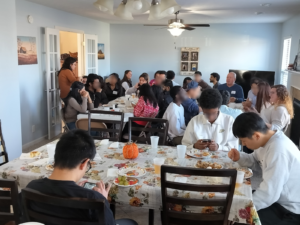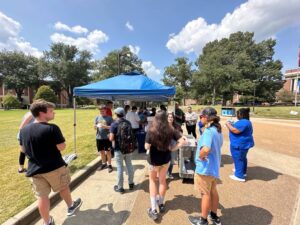Ministry is all about relationships. In addition to the students on the campus, there are relationships that must be nurtured in campus ministry.
Key relationships on the campus:
• The most important campus connection is with the office (usually Student Life or Student Activities) that is responsible for approving campus organizations. The persons in this office are the ones that determine whether your ministry can be on campus. Be sure to meet the director of this office, learn the rules, and follow the rules.
• The second most important campus relationship is with the office that schedules meeting space. The workers in this office are the ones who determine whether you are in a prime accessible location or assigned to a room in the basement. Again, it is important to learn and follow the rules and deadlines for requesting space.
• The faculty sponsor for your campus organization is also a key relationship, mostly because they have an official standing with the campus that you do not have. Get to know them, minister to them and let them know how they can help you. This is one of the people you will need to recruit as you apply to be a campus organization. Finding that person of faith and peace will be important to you.
Other Key Relationships:
• Full-time BCM Director in your area: Besides the encouragement you will gain from this relationship, a full-time director can provide opportunities to partner and provide broader opportunities like mission trips that may require more time than your schedule will allow. They should be considered a partner and a resource to your ministry.
• State Convention Workers: State convention personnel, especially those who work with collegiate ministry, are another opportunity for resources. While they may not have additional funding available, they may have resources that can help you with outreach, your weekly group meeting, as well as mission opportunities for your students.
• Local Churches and the Local Association: Building relationships with local churches is also important. They can be ministry partners that help resource your ministry and welcome students into their fellowship. Remember, BCM is not a church. It is an extension of the church onto the campus and helping students connect with a local church is a key component of what BCM is about on the campus and in the community. The local association of churches also provides opportunities to let the churches know about BCM.






